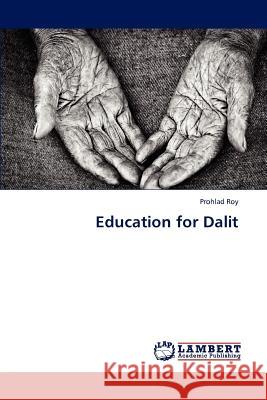Education for Dalit » książka
Education for Dalit
ISBN-13: 9783659321818 / Angielski / Miękka / 2013 / 136 str.
Ensuring access to education for the Dalits of India has been the greatest challenge for the Indian government in diminishing the social effects of the caste system, which still remain entrenched in Indian society. There have been many different reasons proposed as to why the Dalits suffer from low rates of literacy and primary education enrolment, but the most realistic one describes history and unequal access as the causes. The ancient caste system of India, which has resulted in the social and economic oppression of the Dalits, continues to play a dominant role in India. The Dalits, also known as the scheduled caste or untouchables, have experienced consistent denial to access to education since the 1850s. This decade coincided with Britain's established control over India, which meant many of the improvements to Dalit education were coming from outside influences, rather than from the national government.
Ensuring access to education for the Dalits of India has been the greatest challenge for the Indian government in diminishing the social effects of the caste system, which still remain entrenched in Indian society. There have been many different reasons proposed as to why the Dalits suffer from low rates of literacy and primary education enrolment, but the most realistic one describes history and unequal access as the causes. The ancient caste system of India, which has resulted in the social and economic oppression of the Dalits, continues to play a dominant role in India. The Dalits, also known as the scheduled caste or untouchables, have experienced consistent denial to access to education since the 1850s. This decade coincided with Britains established control over India, which meant many of the improvements to Dalit education were coming from outside influences, rather than from the national government.











